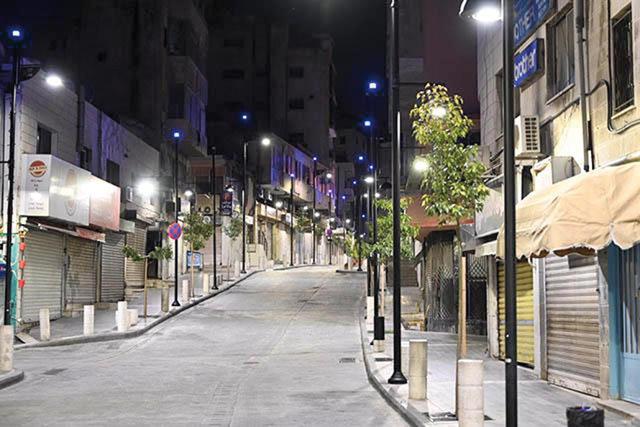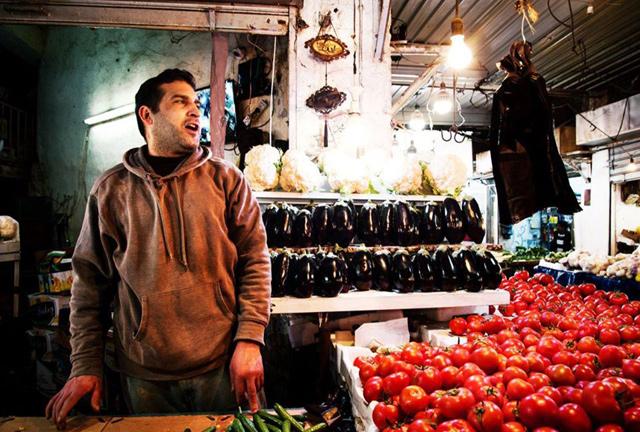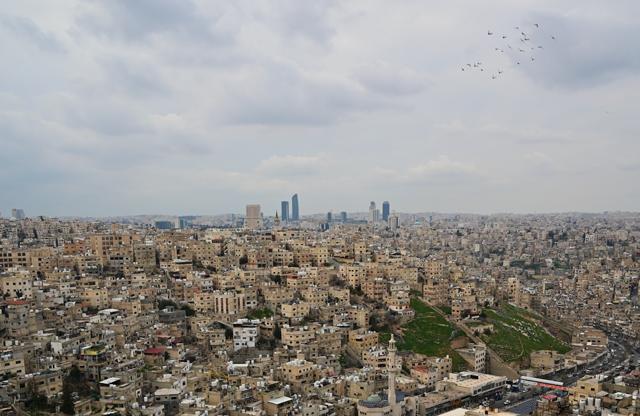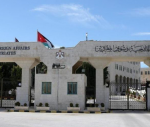You are here
WB approves additional $290m to support vulnerable households, workers in Jordan
By JT - Jun 29,2021 - Last updated at Jun 29,2021

A view of downtown Amman during a nationwide curfew in mid-March (JT file photo)
AMMAN — The World Bank (WB) has approved additional financing of $290 million for the Emergency Cash Transfer COVID-19 Response Project to provide cash support to poor and vulnerable households and workers affected by the economic impact of the COVID-19 pandemic in Jordan.
Although Jordan’s economy is beginning to recover, the shock caused by the pandemic continues to be felt through job losses and reduced earnings, according to a statement posted on the WB website.
Households relying on informal work have been the most affected, with many of them pushed into poverty. Some workers in the formal sector have suffered wage cuts while others have stopped being paid altogether as the companies they worked for close down.
This new financing will scale up cash transfers to poor and near-poor households affected by the pandemic and provide wage subsidies for workers in some of the most affected firms, the statement said.
The financing is part of the $1.1 billion recently announced as a combination of loans and grants by the World Bank and its international partners to support Jordan in responding to the pandemic and promoting an early, climate-resilient, and inclusive recovery.
“The Government of Jordan is carrying out large social protection programmes to reduce the impact the COVID-19 crisis is having on the most vulnerable Jordanians,” Minister of Planning and International Cooperation Nasser Shraideh was quoted in the statement as saying.
“This additional financing will strengthen the support we provide through the National Aid Fund and the Social Security Corporation in cash transfers, unemployment benefits and wage subsidies,” the minister said.
The financing will extend the duration of benefits being made under the “Takaful-3” programme to 160,000 of the households of informal workers for a year; provide wage subsidies for 100,000 formal sector workers for 13 months under the “Istidama” programme; and support cash transfers to 85,000 poor households under the regular “Takaful-1” cash transfer programme.
“The World Bank will continue its support to Jordanians through the crisis,” said Saroj Kumar Jha, World Bank Mashreq regional director, in the statement.
“This financing will expand cash transfers to more households, including female-headed households, and pay part of the salaries of formal sector workers in businesses that are struggling to stay open and keep paying their staff as a result of the pandemic,” he said.
Emergency cash transfers use the registration and delivery platform built for “Takaful-1”, a modern, automated programme for the poor, launched in May 2019 as part of Jordan’s National Social Protection Strategy (2019–2025). Its beneficiaries are selected from a verified database of over one million households. For greater financial inclusion, digitised payments are made through bank accounts and e-wallets, the statement said.
The World Bank Group has committed over $125 billion to combat the health, economic, and social impacts of the COVID-19 pandemic — the fastest and largest response to a crisis in its history, according to the statement.
This financing is helping more than 100 countries strengthen their pandemic preparedness, protect jobs and the poor, and jumpstart financially inclusive and climate-friendly economic recoveries. The bank is also providing $12 billion to help low- and middle-income countries buy and distribute COVID-19 vaccines, tests, and treatments, concluded the statement.
Related Articles
AMMAN — The World Bank (WB) Group’s Board of Executive Directors on Thursday approved a $374 million project to provide cash support to 270,
AMMAN — The World Bank approved $350 million in additional financing for Jordan’s COVID-19 Emergency Response Project to continue cash
AMMAN — British Ambassador to Jordan Bridget Brind on Monday visited the National Aid Fund’s (NAF) main branch in Amman.During her visit, sh


















